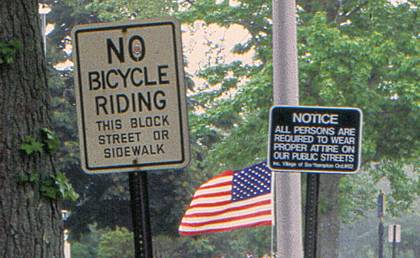

EDITOR'S NOTE

16 January 05
A Pirated Editorial on Publishing and Art in (cyber)Space
Guest Editorial
Does Z E B R A M E A T matter? In this post-millennial, post-dot.com boom, era, when there are few who still want to use the Internet as a place to make serious money selling art, what is our purpose? Has it changed? The answer is "No." As the movement of data has become second nature to the current generation of mainstream consumers, content remains king, yet few people are paying and the Internet largely remains a big public art display (and, sadly, our email dominated by spam). In this post-hype environment, Z E B R A M E A T grows in stature, occupying decent real estate in the hierarchical machine-mind of the imaginary core of pseudo-order created by the primary search engines. You might ask: how did I get to this page among the millions that might have been displayed for my Google search? Why does the Zebra matter?
To answer this question, it helps to think about what makes the Internet different as a medium and what that means. For one, it means people can steal; they can appropriate; they can pirate. Students use the Internet to learn and cheat, people self-publish (as we do here) with little effort, and anyone can voyeuristically peek in from anywhere. The Internet is a heterotopia; it is a place where you can be almost anywhere from anywhere else, yet always stuck in a vortex of nowhere. To find anything you must use Google. And since Google likes to eat zebra meat, what we say here ends up on Main Street as often as it's relegated to back alleyways. We are street performers and we don't need a license to be here, nor does anyone else. This is a good thing.
Z E B R A M E A T recently had its first overt case of self-censorship. An author was displeased with a piece she wrote for the previous volume and asked that it be removed. She felt too many people were reading it, and she no longer agreed with her own argument. She was embarrassed. She felt that even her own words were no longer under her control and she didn't want to commit to them any longer. She soon learned that once you put something out on the Internet, just as in print, it is hard to ever bring it back -- perhaps even harder. She was anxious that the Google link remained active after the offending piece was removed. And although the link is dead now, the author can never know where her words have been stored. Surely there are machines that index and archive as much of the Internet as possible, creating a trove of material to be mined for digital bits of all varieties.
In contemplating piracy, we embrace our medium -- plastic yet firm. The Internet is public art: a space where anyone can spew forth and everyone democratically loses control of where her or his words and images end up, are consumed, or downloaded. Anyone can read this or steal this page. We can't ever really take it back. Clearly the music companies, more than any other interest group, have realized this problem, and it has changed their industry, but that is just the tip of the iceberg and we all know about e-commerce. What is less obvious is how this ability to appropriate will change the face of art and politics in this public heterotopic space, in this simultaneous kaleidoscope of artistic (and other) expression.
Publishing on the web is just like any other form of publishing. It seems impermanent, but it is not. Once you put it out there, it is no longer under your control. Ever. Welcome to the world of piracy.
features | archive | editor's note | letters | contributors | contact us